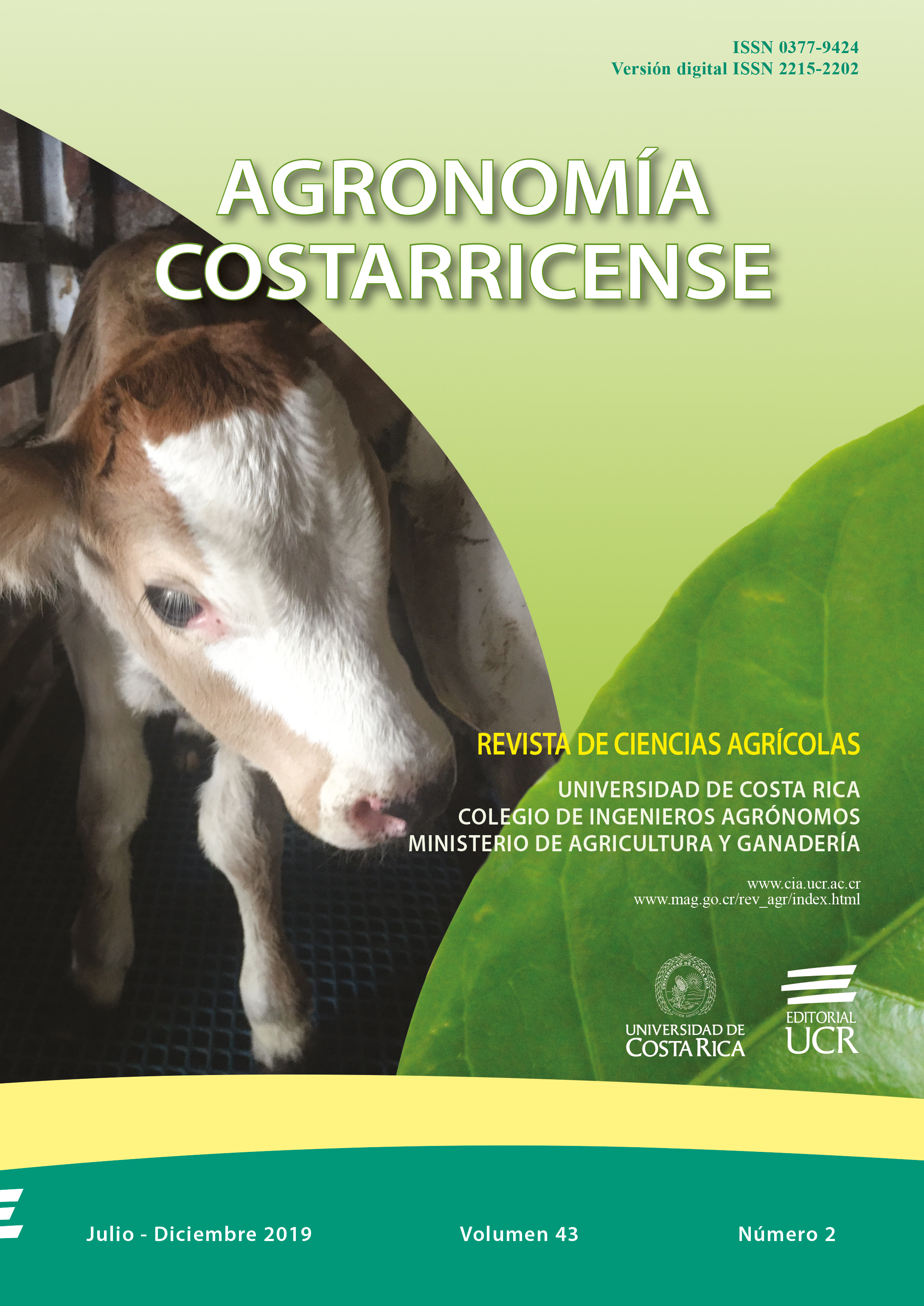Abstract
The age at first calving (AFC) correspond to one of the most important parameters to quantify the productive efficiency of bovines, because it influences the productive performance and milk composition. The aim of the study was to quantify the effect of the animal and environmental variables, modifiable and nonmodifiable, from birth to weaning, on AFC in specialized dairy herds in Costa Rica. A cohort retrospective study was conducted, including a total of 2980 Jersey and Holstein cows with AFC in the period between 2013 and 2015, belonging to 22 specialized dairy herds located in different ecological zones of Costa Rica, with data in the Bovine VAMPP program. All data in the present research, was analyzed by descriptive analysis and a generalized linear model. The average AFC for the animals in the present study was 27.4 months (±4.7). Non- modifiable variables, like breed, had significant effect over AFC, with 30,1 (CI95%: 29.8-30.4) and 28.4 months (CI 95%: 28.1-28.8) for Holstein and Jersey respectively. Furthermore, the results showed a significant effect of management as a modifiable variable (p<0.0001) revealing that farms with high quality calf rearing protocols had AFC of 27.63 months (CI95%: 27.24-28.03), contrary to poor quality systems (AFC: 30.20; CI95%: 29.83-30.57). This tendency was consistent whether the management variable was included as independent in the model or associated to breed and herd factors, where high efficiency in calf rearing reflects into better values of AFC.


